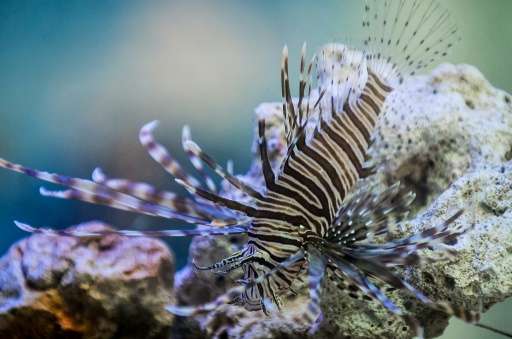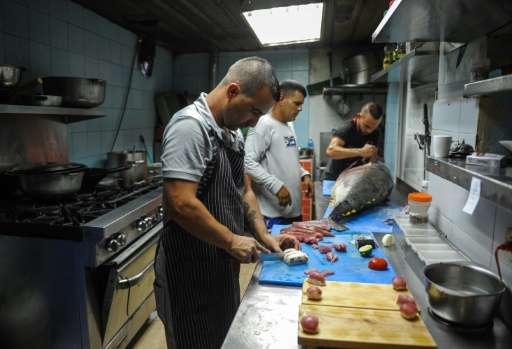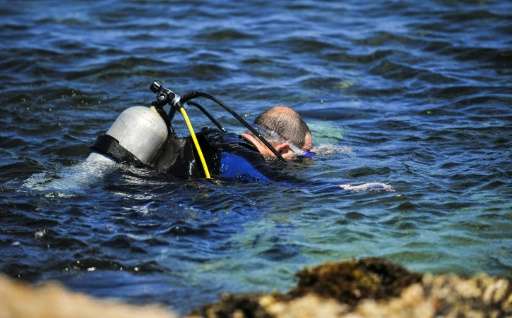To fight lionfish invasion, Cuba learns to cook them

If you can't beat your enemies, eat them: That's the strategy Cuba has adopted to respond to an invasion of lionfish, a poisonous predator that has strayed far from its home waters in the South Pacific and Indian Oceans.
A favorite in aquariums for its flamboyant spines and vibrant orange and red stripes, the lionfish is wreaking havoc on ecosystems in the Caribbean and the Gulf of Mexico, where it showed up about a decade ago.
The fish is hanging out around the region's coral reefs, living large as it feasts on smaller species and scares off its own potential predators with its venomous spines.
Except for humans, that is.
Defying the invasion and fear of those intimidating spines, Cubans have begun serving up lionfish for dinner—a tasty meal and act of ecosystem conservation all in one.
Delmis Cabrera, a marine biologist at the National Aquarium in Havana, said lionfish were first recorded in Cuba in 2007, apparently after being introduced to Caribbean waters accidentally.
Within two years, the fish surrounded the island.
Even sharks won't go near them, giving them free rein to feed and spread.
The problem has gotten so bad that combating the lionfish is the top item on the agenda at a summit of the Association of Caribbean States on Saturday in Havana.

Bad reputation
But Cuba isn't waiting for regional governments to come up with a plan.
It is catching lionfish and putting them on the menu.
"We know it's a poisonous species that has its risks... but it's also delicious," said Cabrera.
Lionfish has been eaten in Japan for years. And, like Cuba, a number of countries on the other side of the world are starting to experiment with it in the kitchen, including Colombia, Costa Rica, Mexico and the southern United States.
Cuba now holds an annual fishing tournament for the species.
"It has practically been decimated," Cabrera told AFP.
Professional diver Enrique Valdes backed that up.
"Now you usually only see little ones," said the 55-year-old SCUBA pro.

Restaurants are trying to create a buzz around the new protein-rich fish, even if some customers are reluctant at first.
Besides scaring off predators with its spines, the lionfish is also known for stinging bathers and fishermen who come into contact with them, with symptoms that include pain, swelling or an allergic reaction.
"We are trying to introduce it on the menu, but since it's a fish everyone knows as venomous," it is difficult, said Santy Pescador restaurant manager Carlos Fonseca.
Possible cancer drug?
Preparing lionfish requires just a little caution.
"The spines have venomous glands that can cause respiratory paralysis, muscle pain and fever for up to three days if you prick yourself," said Noriesky Gao, 30, a chef at Santy Pescador.
Since it is an invasive species that only recently arrived, he and his colleagues are still figuring out what to do with it.
He has been experimenting with lionfish sushi.
"Customers really enjoy it. It has white, juicy flesh. Here, people usually eat it raw," he said.
Cuban biologists are also studying the lionfish's venom as a possible cancer-fighting agent, said Cabrera.
© 2016 AFP
















